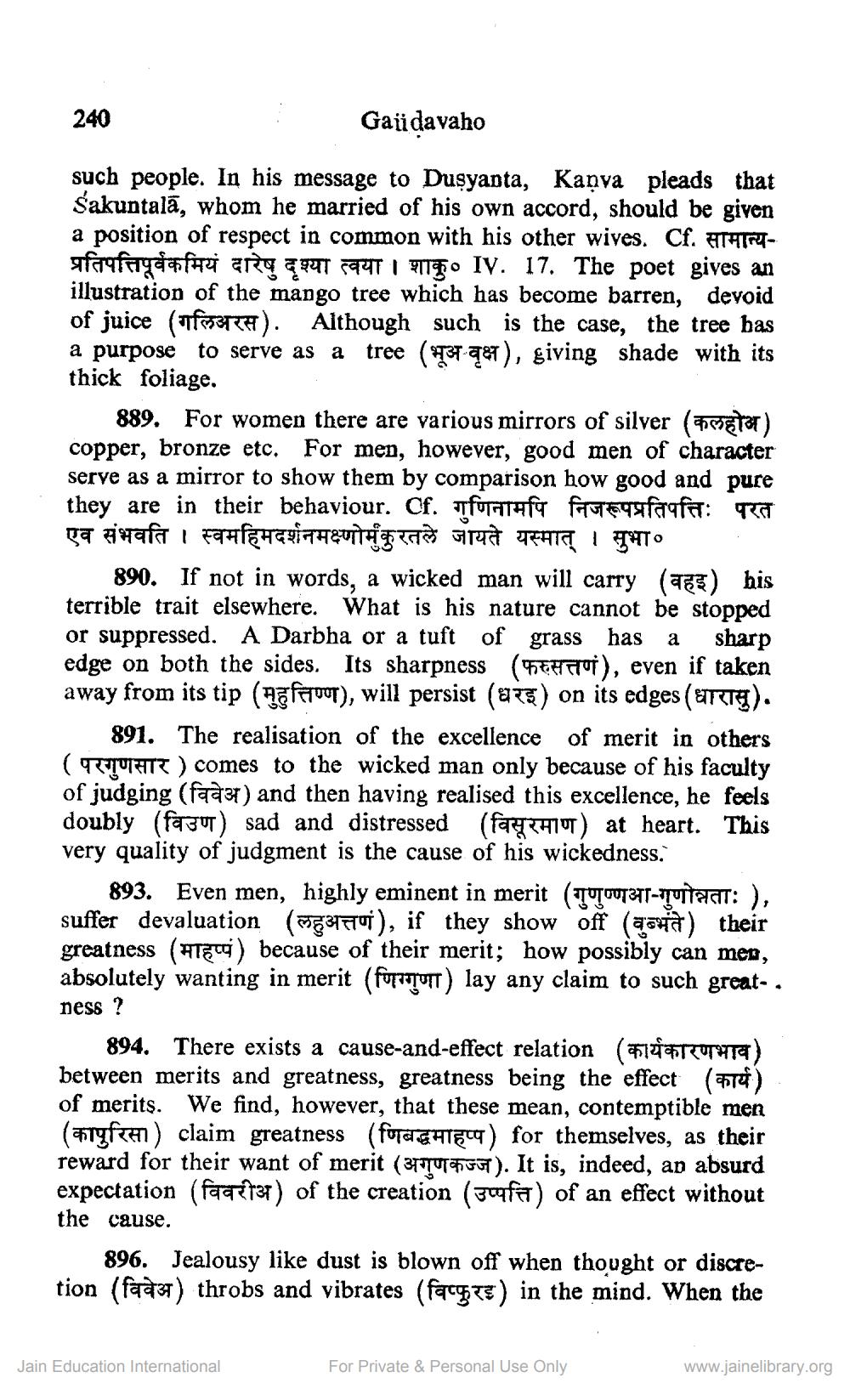________________
240
Gaïdavaho
such people. In his message to Duşyanta, Kaņva pleads that Sakuntalā, whom he married of his own accord, should be given a position of respect in common with his other wives. Cf. ATHIRyfirfryer fit ang Out 597 | 977950 IV. 17. The poet gives an illustration of the mango tree which has become barren, devoid of juice (FOTETTH). Although such is the case, the tree bas a purpose to serve as a tree (737-48T), giving shade with its thick foliage.
889. For women there are various mirrors of silver (Timetat) copper, bronze etc. For men, however, good men of character serve as a mirror to show them by comparison how good and pure they are in their behaviour. Of. TfortafT forensfare: TSST एव संभवति । स्वमहिमदर्शनमक्ष्णोर्मुकुरतले जायते यस्मात् । सुभा०
890. If not in words, a wicked man will carry (ar) his terrible trait elsewhere. What is his nature cannot be stopped or suppressed. A Darbha or a tuft of grass has a sharp edge on both the sides. Its sharpness (967 FOOT), even if taken away from its tip (मुहुत्तिण्ण), will persist (धरइ) on its edges (धारासु).
891. The realisation of the excellence of merit in others (RTUHT ) comes to the wicked man only because of his faculty of judging (fast) and then having realised this excellence, he feels doubly (fasu) sad and distressed (fary HOT) at heart. This very quality of judgment is the cause of his wickedness.
893. Even men, highly eminent in merit (ITUTOUTSTT-TTUITECT: ), suffer devaluation (E3TFTO), if they show off (asta) their greatness (HTEVO) because of their merit; how possibly can men, absolutely wanting in merit (foramUTT) lay any claim to such great. ness ?
894. There exists a cause-and-effect relation ( 611FTRUTHT) between merits and greatness, greatness being the effect (Ford) of merits. We find, however, that these mean, contemptible men (Flyf<H) claim greatness (fordgHTEC) for themselves, as their reward for their want of merit (347uft). It is, indeed, ap absurd expectation (विवरीअ) of the creation (उप्पत्ति) of an effect without the cause.
896. Jealousy like dust is blown off when thought or discretion (faat) throbs and vibrates (Facy 75) in the mind. When the
Jain Education International
For Private & Personal Use Only
www.jainelibrary.org




